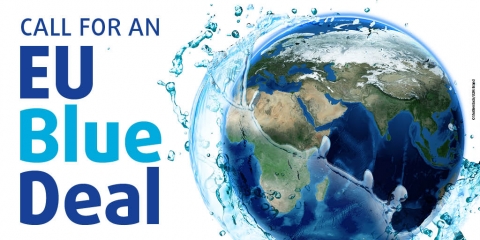European Economic
and Social Committee
The EU Blue Deal Initiative and the example of rivers: sustainable water management
Water is intrinsically linked to climate change and its impacts. Rivers, an essential and visible part of the great water cycle, bear witness to this: an increase in extreme droughts and floods; conflicts of use between energy, irrigation and drinking water; loss of biodiversity; tension between countries or territories for control of the resource.
What will a +1.5°C world look like with lower quality and more scarce freshwater resources? By 2050, the demand for water could increase by 55%, and 40% of the world's population will face water shortages. While mitigating the effects of climate change by drastically reducing greenhouse gas emissions into the atmosphere is essential, water must also be better integrated into the various sectoral adaptation strategies: agriculture, environment, energy, industry, transport and consumption.
How can the preservation of water resources be better taken into account in public policies to develop the resilience of European territories and provide effective responses to the cross-cutting challenges of climate, biodiversity and the health of ecosystems and humans?
In October 2023 the EESC presented its Call for an EU Blue Deal to comprehensively address these issues. In the context of the forthcoming European elections and the announcement of a Water Resilience Initiative by the European Commission, this event will help identify the levers to better promote and implement integrated and concerted water management in Europe by focusing on the concrete example of rivers, which are easily accessible water reserves and providers of many services to societies.
This meeting is hosted by the European Economic and Social Committee (EESC), as a follow-up of its call for an EU Blue Deal. It is organised in partnership with the European Parliament Intergroup on “Climate Change, Biodiversity and Sustainable Development” and the Compagnie Nationale du Rhône (CNR).
